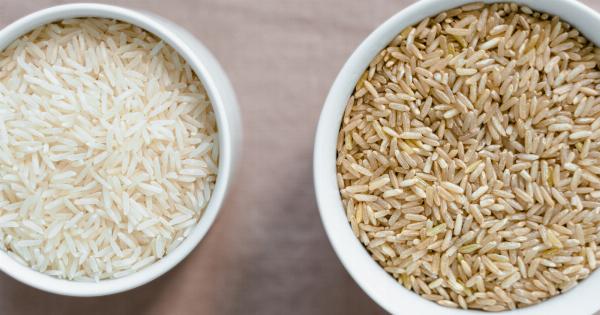Crohn’s disease is a chronic condition that affects the digestive tract. It can make it difficult for sufferers to absorb certain vitamins and nutrients, which can lead to deficiencies.
If you have Crohn’s disease, it is important to pay attention to your vitamin intake to ensure that you are getting the nutrients that you need. Here are 10 essential vitamins that Crohn’s disease sufferers should pay attention to:.
Vitamin B12
Vitamin B12 is essential for nerve function and the production of red blood cells. Some Crohn’s disease sufferers may have difficulty absorbing this vitamin, leading to a deficiency.
Symptoms of vitamin B12 deficiency can include fatigue, weakness, and tingling in the hands and feet. It is important for Crohn’s disease sufferers to have their vitamin B12 levels checked regularly and to take supplements if necessary.
Vitamin D
Vitamin D is important for bone health, immune function, and inflammation control. Crohn’s disease sufferers may have difficulty absorbing this vitamin due to inflammation in the digestive tract.
Low levels of vitamin D have been associated with an increased risk of bone fractures, autoimmune diseases, and certain types of cancer. It is important for Crohn’s disease sufferers to get their vitamin D levels checked regularly and to take supplements if necessary.
Vitamin A
Vitamin A is important for eye health, immune function, and healthy skin. Crohn’s disease sufferers may have difficulty absorbing this vitamin due to inflammation in the digestive tract.
Symptoms of vitamin A deficiency can include night blindness, dry skin, and increased susceptibility to infections. It is important for Crohn’s disease sufferers to get their vitamin A levels checked regularly and to take supplements if necessary.
Vitamin K
Vitamin K is important for blood clotting and bone health. Some Crohn’s disease sufferers may have difficulty absorbing this vitamin, leading to a deficiency.
Symptoms of vitamin K deficiency can include easy bruising, bleeding gums, and heavy menstrual periods. It is important for Crohn’s disease sufferers to have their vitamin K levels checked regularly and to take supplements if necessary.
Vitamin E
Vitamin E is important for skin health, immune function, and cell protection. Crohn’s disease sufferers may have difficulty absorbing this vitamin due to inflammation in the digestive tract.
Low levels of vitamin E have been associated with neurological disorders, muscle weakness, and an increased risk of infections. It is important for Crohn’s disease sufferers to get their vitamin E levels checked regularly and to take supplements if necessary.
Vitamin C
Vitamin C is important for immune function, wound healing, and collagen production. Crohn’s disease sufferers may have difficulty absorbing this vitamin due to inflammation in the digestive tract.
Symptoms of vitamin C deficiency can include anemia, weakness, and bleeding gums. It is important for Crohn’s disease sufferers to get their vitamin C levels checked regularly and to take supplements if necessary.
Calcium
Calcium is important for bone health, muscle function, and nerve transmission. Crohn’s disease sufferers may have difficulty absorbing this mineral due to inflammation in the digestive tract.
Low levels of calcium can lead to bone loss and an increased risk of fractures. It is important for Crohn’s disease sufferers to get their calcium levels checked regularly and to take supplements if necessary.
Magnesium
Magnesium is important for muscle function, nerve transmission, and bone health. Crohn’s disease sufferers may have difficulty absorbing this mineral due to inflammation in the digestive tract.
Symptoms of magnesium deficiency can include muscle weakness, tremors, and anxiety. It is important for Crohn’s disease sufferers to get their magnesium levels checked regularly and to take supplements if necessary.
Zinc
Zinc is important for immune function, wound healing, and cell growth. Some Crohn’s disease sufferers may have difficulty absorbing this mineral, leading to a deficiency.
Symptoms of zinc deficiency can include hair loss, poor wound healing, and increased susceptibility to infections. It is important for Crohn’s disease sufferers to have their zinc levels checked regularly and to take supplements if necessary.
Folate
Folate is important for cell growth and DNA synthesis. Crohn’s disease sufferers may have difficulty absorbing this vitamin due to inflammation in the digestive tract.
Low levels of folate have been associated with anemia, birth defects, and an increased risk of certain cancers. It is important for Crohn’s disease sufferers to get their folate levels checked regularly and to take supplements if necessary.


























